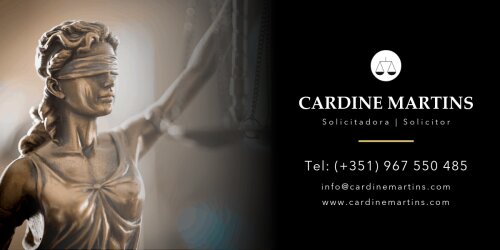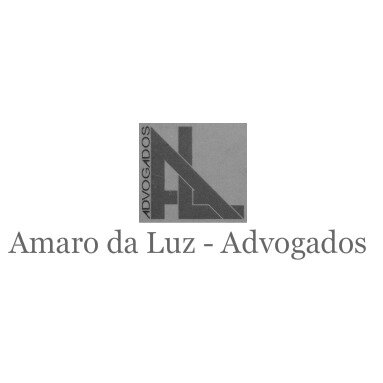Best Trusts Lawyers in Portugal
Share your needs with us, get contacted by law firms.
Free. Takes 2 min.
Or refine your search by selecting a city:
List of the best lawyers in Portugal
About Trusts Law in Portugal
Trusts are a well-established mechanism in many common law jurisdictions for managing assets, planning estates, and providing for beneficiaries. However, in Portugal, which follows a civil law system, traditional Anglo-Saxon trust structures are not explicitly recognized in the same way they are in common law countries. Instead, similar objectives are often achieved through family foundations, fiduciary contracts, or estate planning instruments compatible with Portuguese law. Despite this, Portugal does acknowledge international trust structures to some extent, especially regarding cross-border estates or foreign trusts recognized for taxation purposes.
Why You May Need a Lawyer
Legal complexities in trust-related matters in Portugal may arise in several situations, such as:
- Estate Planning: Structuring your estate to provide for your heirs in a tax-efficient manner, which may involve cross-border elements.
- Inheritance Disputes: Navigating and resolving disputes over inheritance, especially involving foreign assets or beneficiaries abroad.
- Tax Compliance: Understanding tax obligations related to foreign trusts and ensuring compliance with Portuguese tax laws.
- Managing Assets: Seeking expertise in setting up or managing fiduciary relationships that fulfill trust-like roles within the limits of Portuguese law.
- Estate Settlement: Handling the legalities of settling an estate that includes trust components or overseas trust assets.
Local Laws Overview
Portuguese law does not have a direct counterpart to the trust as understood in common law countries, but several legal instruments can fulfill similar roles:
- Fiduciary Contracts: Contracts that can establish a fiduciary duty which reflects trustee-beneficiary relationships.
- Foundations: Private/corporate entities used to manage family wealth and provide for future generations, offering some parallels to trusts.
- Succession Law: Guides inheritance and estate distribution, including mandatory heirship rules and reserved portions.
- Tax Legislation: Governs the fiscal treatment of international trusts and how foreign trust income is taxed in Portugal.
Frequently Asked Questions
What is a trust?
A trust is a legal arrangement where one party holds and manages assets for the benefit of another. In Portugal, similar goals are typically achieved through fiduciary contracts or foundations.
Are trusts recognized in Portugal?
Traditional trusts are not part of Portuguese law, but some similar mechanisms exist, and foreign trusts may be recognized for specific purposes like taxation.
How are international trusts treated in Portugal?
International trusts can be recognized for taxation and relate to conflict of laws principles, with trust income being taxable if the beneficiary or settlor is Portuguese resident.
What alternatives exist to set up a trust in Portugal?
Alternatives include establishing a Portuguese foundation or entering into a fiduciary contract, both serving trust-like purposes under certain circumstances.
How can I ensure my children inherit my assets?
Portuguese law has specific succession regulations that ensure a portion of the estate is reserved for heirs, commonly through direct inheritance or under a will.
Are there particular tax advantages with trusts?
While trusts aren't conventional in Portugal, foreign trusts can offer tax benefits related to estate and gift taxes when correctly structured with international considerations.
Can I create a trust through my will in Portugal?
A will cannot create a trust per se, but it can establish terms to manage your assets posthumously, potentially using structures like foundations or fiduciary relationships.
Do I need a lawyer to manage trust-related issues?
Due to the complexity and international elements typically involved, consulting a lawyer is highly recommended for trust-related matters and estate planning in Portugal.
How do inheritance laws affect trusts in Portugal?
Inheritance laws may limit trust operations, especially regarding mandatory heirship rules which dictate certain portions of the estate must go to specific heirs.
What should I consider when dealing with cross-border trusts?
Consider legal recognition, tax implications, and potential conflicts of law, which necessitates expert legal advice to ensure compliance and optimize structuring.
Additional Resources
For more information, potential resources and organizations that can assist include:
- Portuguese Bar Association: Offers information on finding qualified legal professionals.
- Instituto dos Registos e do Notariado: Provides guidance on legal matters involving estates and succession.
- Portuguese Tax and Customs Authority (Autoridade Tributária e Aduaneira): Offers insights into relevant tax obligations.
Next Steps
If you are considering or need assistance with trust-related matters in Portugal, here are some steps you can follow:
- Identify Your Needs: Clearly define what assistance you require-be it estate planning, tax advice, or asset management.
- Consult a Lawyer: Engage with a legal expert specializing in trusts, cross-border estates, and inheritance laws in Portugal.
- Gather Documentation: Prepare and organize all relevant documents, including wills, estate plans, and any international trust information.
- Consider Alternative Structures: Explore legal structures that fulfill trust purposes under Portuguese law with your lawyer.
- Stay Informed: Keep up-to-date with any changes in legislation that may impact your plans going forward.
Lawzana helps you find the best lawyers and law firms in Portugal through a curated and pre-screened list of qualified legal professionals. Our platform offers rankings and detailed profiles of attorneys and law firms, allowing you to compare based on practice areas, including Trusts, experience, and client feedback.
Each profile includes a description of the firm's areas of practice, client reviews, team members and partners, year of establishment, spoken languages, office locations, contact information, social media presence, and any published articles or resources. Most firms on our platform speak English and are experienced in both local and international legal matters.
Get a quote from top-rated law firms in Portugal — quickly, securely, and without unnecessary hassle.
Disclaimer:
The information provided on this page is for general informational purposes only and does not constitute legal advice. While we strive to ensure the accuracy and relevance of the content, legal information may change over time, and interpretations of the law can vary. You should always consult with a qualified legal professional for advice specific to your situation.
We disclaim all liability for actions taken or not taken based on the content of this page. If you believe any information is incorrect or outdated, please contact us, and we will review and update it where appropriate.
Browse trusts law firms by city in Portugal
Refine your search by selecting a city.
















